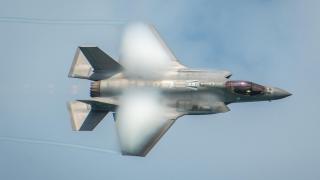The crown prince of Saudi Arabia, Mohammed bin Salmanvisits the White House this Tuesday with the aim of strengthening a decades-old alliance based on oil and security. Specifically, look for reinforce its defense alliance, with the possible purchase of F-35 fighters, Patriot anti-missile systems and advances in its civil nuclear program.
For its part, Donald Trump seeks to take advantage of the promise of Saudi investment by 600,000 million euros in Defense and cooperation in health or energy made during his trip to the kingdom in May, and with which Riyadh seeks to improve “the development and modernization of the capabilities of the Saudi Armed Forces.”
However, that dynamic of oil for safety cstarted to falter in 2019, when Iran attacked Saudi oil facilities and the White House chose not to respond forcefully. The tensions that surfaced again in September of this year, after Israel bombed Doha, Qatar, in an offensive called the Fire Summit directed—according to Tel Aviv—against members of the Palestinian group Hamas.
Shortly after, Donald Trump signed an executive order to seal a defense agreement with Qatar, a gesture that many analysts, diplomats and officials in the region interpret as a possible prelude to a similar pact with Saudi Arabia. However, the Saudi kingdom aspires to a stronger defense treaty ratified by the US Congress.
Of course, Washington, for its part, has conditioned that commitment on the Saudis normalizing their relations with Israel, something difficult to achieve, because Riyadh links any progress to a previous step: that the Israeli government—the most right-wing in its history—commits in a tangible way to the creation of a Palestinian State.
This same Sunday, the prime minister Benjamin Netanyahu, who last month reached a ceasefire with Hamas through Trump after two years of war in Gaza, has once again underlined his firm opposition to Palestinian independence.
Patriot y F-35
Riyadh aspires to incorporate the latest generation F-35 stealth fighters, un weapons that, for now, only Israel has in the region, although the United Arab Emirates and Morocco could also access them in the future.
During the negotiations of the Abraham Accords, in 2020, Israel agreed to let the United States supply F-35 fighters to the United Arab Emirates, although it imposed strict security conditions to preserve its military superiority in the region. That precedent became a model of strategic cooperation between Washington and its Arab allies, and years later Morocco also joined a similar understanding.
An Israeli F-35.
Reuters
Now, that same formula is back on the table in the case of Saudi Arabia. Behind the negotiations lie Washington’s attempts to strengthen its influence in the Middle East at a time of growing competition with China and Russia.
The Saudi kingdom has reactivated its interest in acquiring up to 48 cazas F-35 Lightning II, after years of keeping the request frozen for political and strategic reasons. The debate has gained new momentum within the review of US defense export policy, and the visit of Saudi leaders to Washington could become a turning point.

Diplomatic sources indicate that Israel is not opposed to the operation, siprovided that the sale is subject to real progress towards normalization of relations with Riyadh.
As Dennis Ross, a former Middle East negotiator who has worked with both Democratic and Republican administrations and current fellow at the Washington Institute for Near East Policy, told Reuters, the issuance of a executive order that forces the United States now Saudi Arabia to “immediately consult on the measures to be taken in the event of a threat,” without this implying a commitment from Washington to actively defend Riyadh.
“That commitment could range from offering military aid and replenishing weapons to deploying batteries of defensive missiles such as THAAD or Patriot, sending naval forces with Marines or actively participating in combat operations, both defensive and offensive,” Ross explained.
Plan nuclear civil
One of Riyadh’s key objectives is to obtain US approval for access to advanced computer chips, a centerpiece of its aspiration to become a global hub for artificial intelligence.
This technological race is intensifying in the face of competition from United Arab Emirateswhich in June signed a multimillion-dollar agreement with Washington to build data centers and gain access to cutting-edge semiconductors.
The crown prince Mohammed bin Salman seeks to close an ambitious agreement with the United States to promote a civil nuclear program in Saudi Arabiaa key step in its strategy of economic diversification and reduction of dependence on oil.
The initiative is part of the so-called Vision 2030, with which Riyadh aims to modernize its economy and position itself as a regional leader in new technologies and alternative energies.
This civil nuclear project, still in the negotiation phase, would put the US industry at an advantage for the construction and technology of future Saudi nuclear power plants. Furthermore, the collaboration is framed in a geopolitical context of regional tension, where energy security and cooperation with Washington are priorities for the Saudi leadership.
Such a pact would allow Saudi Arabia to access American nuclear technology and security guarantees, in addition to placing it on a par with the Emirates, which already has its own program, and its historical rival, Iran.
However, the negotiations face a key obstacle: Riyadh is reluctant to accept Washington’s demand to give up uranium enrichment and spent fuel reprocessing, since both processes could open the door to the development of nuclear weapons.

